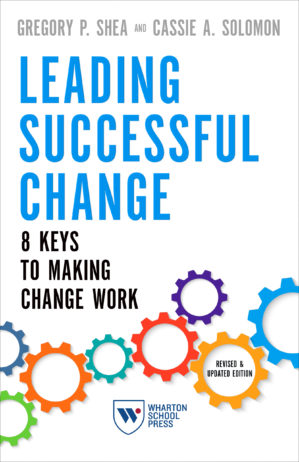“For scientific discovery give me Scott; for speed and efficiency of travel give me Amundsen; but when disaster strikes and all hope is gone, get down on your knees and pray for Shackleton.”
– Antarctic explorer, Sir Raymond Priestly
In 1914, Europe began WWI and set about devouring a generation of European men. Also that year, Ernest Shackleton, already a famed and knighted Antarctic explorer, headed an expedition to cross that continent. The ice trapped and then crushed his ship, the Endurance, forcing months of camping on the ice followed by a six day open boat trip. Next came a truly incredible three week ordeal as Shackleton and a crew of 5 others crossed 830 miles through hurricane and gale roiled seas in a modified life boat. Then, he and 2 others traversed the uncharted interior of South Georgia Island (a first) and its perilous combination of mountains and ice fields (32 miles in about 36 hours). Shackleton’s multiple attempts to rescue those left behind culminated in his arriving with a rescue ship four months after his departure. Reportedly, he could not bear to watch from the rescue launch as his boatmates counted the number of survivors visible and waving on shore. Everyone had survived.
I often explore the case with executives attending Wharton’s Aresty Institute of Executive Education because of its richness and the starkness of the colors of its lessons…and because as the novelist Thomas V. Pychon said, “You wait. Everyone has an Antarctic.” I even taught the case in Antarctica as part of an eight day/seven night Antarctic trek one hundred years after Shackleton’s expedition made it out. Research and cumulative leadership experiences support many of Shackleton’s practices and in these times, I offer a few up for you who lead when it matters most, like now.
- Be honest and clear. Those in authority need to help one and all to understand reality, as best as we can possibly understand it. Truth and clarity on the part of those in charge help those not in charge to stay calm and to trust that those in charge deserve to be in charge. In Shackleton’s case, that meant the following. Icebound for nearly 300 days, their ship, the Endurance sank. In anticipation, Shackleton had ordered evacuation and the establishment of a camp on the ice. Everyone had heard and felt the crushing grip of the ice for months and especially over the preceding few weeks. The moment to abandon ship came. Gathered on the ice, the expedition listened to Shackleton. Where would his legendary optimism and tenacity lead his thinking? Would he advocate pushing on with the mission to cross the continent? Shackleton, financially invested in this expedition up to and over the crown of his head, stated simply and calmly, ‘Ship and stores gone, so now we go home.’
- Be optimistically problem centered, action focused, other oriented, and concrete. Restated, ‘This is reality. This is what’s going to happen. Here’s what we need to do.’ Given #1 above, Ernest Shackleton kept people busy in very specific tasks such as when he overheard an expedition member wondering out loud about whether it was worth carrying on. Shackleton asked the man to make tea for the group, which he did. Shackleton then noted with pleasure that the man had next washed his socks and carefully hung them out to dry. People need to see that they remain connected to others, that their efforts still matter, and, indeed, that they themselves still matter.
- Create routine and structure. Reinforce order amidst the unknown and chaotic. A regular schedule of group and individual check-ins along with clear goals for this week or even this day help people keep their corner of the universe tidy. It’s high stakes feng shui. Specific short term tasks also enable people to maintain a sense of their own efficacy, a sense that they can influence their environment, that they should not give in or up.
- Anxiety up, intelligence down…including yours. Adjust to this reality and keep it simple…in order to help you and others focus. It’s not the time for grand statements. Also, keep the real enemy in clear site. Look over the gunwales as much as possible and, as Shackleton did, move toward conflict, address it, tamp it down. Likely, it will not just ‘blow over’.
- Get out there. Restated, don’t hang around headquarters when the shooting starts. Find your unit. Walk the parapet. People want to know that they’re not cut off, that they remain connected to the organization…that they matter. Talk to people regularly as a group and as individuals. Stay in touch. The presence of members of the chain of command supports a sense of connection and of being valued. Also, that higher ranking person often can, when needed, secure resources and make bigger decisions, a reality that helps people feel that they have or can get what they need in order to overcome the times, however hard.
- Play… regularly. Shackleton organized and encouraged both a busy routine (see #3 above) and regular play such as slide shows, phonograph sessions, theatre, and football. He saved a banjo while discarding all non-essentials for the sake of lessening weight for travel. Today, science tells us the physiological and physiological benefits of laughter and of staying in touch with the joy of living. It’s why people join to sing across rooftops and balconies around the world as the sun goes down on another trying and isolated day. You and your people should too.
What do these practices look like amidst Covid-19? Scroll through a few stories about its handling by Angela Merkel, Jacinda Ardern, Lady Gaga (in combination with IBM’s Ginni Rametty and Pepsico’s Kirk Tanner) or Captain Crozier. As for how much in the end, any of this matters consider Sir Edmund Hillary, the first European to summit Mount Everest. Hillary also fulfilled Shackleton’s hope of crossing Antarctica, doing so as part of an expedition 40 years after Shackleton’s attempt. When asked about Shackleton, Hillary leaned on a quote often attributed to another Antarctic explorer, Sir Raymond Priestly: “For scientific discovery give me Scott; for speed and efficiency of travel give me Amundsen; but when disaster strikes and all hope is gone, get down on your knees and pray for Shackleton.” Or, consider what type of relationship do you want with your team, not just during, but after COVID-19?
About the Author:
 Gregory P. Shea, Ph.D., consults, teaches, researches, and writes in the areas of organizational and individual change, leadership, group effectiveness, and conflict resolution. He is a Senior Fellow at the Wharton School’s Center for Leadership and Change, Adjunct Professor of Management at the Wharton School of the University of Pennsylvania and of its Aresty Institute of Executive Education, Adjunct Senior Fellow at the Leonard Davis Institute of Health Economics at the Wharton School, President of Shea & Associates, Inc, Senior Consultant at the Center for Applied Research, and a principal in the Coxe Group, an international consulting firm serving the design professions. He served as Academic Director for the Johnson and Johnson/Wharton Program for Health System CEO’s and for fourteen years as Academic Director for the Johnson and Johnson/Wharton Fellows Program for Nurse Executives. His awards include an Excellence in Teaching Award from Wharton. He is a member of the Academy of Management and the American Psychological Association.
Gregory P. Shea, Ph.D., consults, teaches, researches, and writes in the areas of organizational and individual change, leadership, group effectiveness, and conflict resolution. He is a Senior Fellow at the Wharton School’s Center for Leadership and Change, Adjunct Professor of Management at the Wharton School of the University of Pennsylvania and of its Aresty Institute of Executive Education, Adjunct Senior Fellow at the Leonard Davis Institute of Health Economics at the Wharton School, President of Shea & Associates, Inc, Senior Consultant at the Center for Applied Research, and a principal in the Coxe Group, an international consulting firm serving the design professions. He served as Academic Director for the Johnson and Johnson/Wharton Program for Health System CEO’s and for fourteen years as Academic Director for the Johnson and Johnson/Wharton Fellows Program for Nurse Executives. His awards include an Excellence in Teaching Award from Wharton. He is a member of the Academy of Management and the American Psychological Association.
Greg is also the coauthor of Leading Successful Change, Revised and Updated Edition



